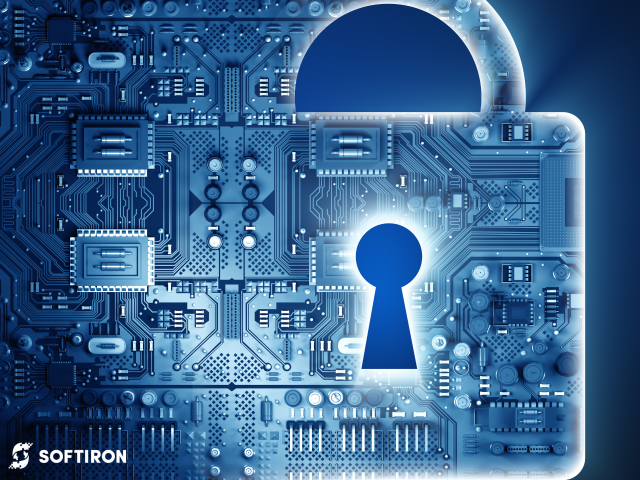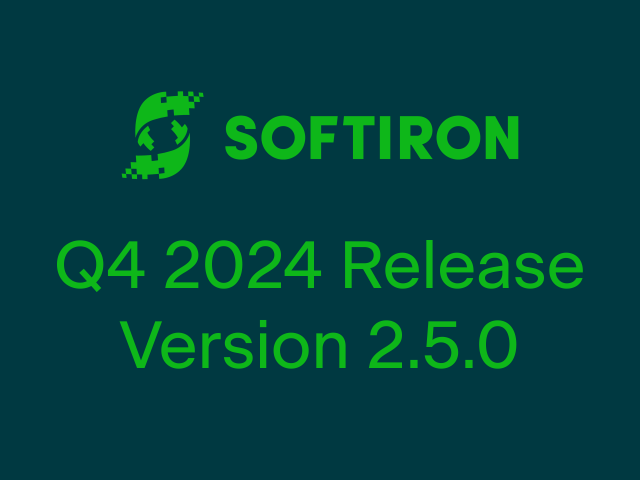We think so and so we acted. SoftIron’s HyperCloud is the world’s first true private cloud to offer built-in, post-quantum cryptography support, ensuring your data remains secure against the next generation of cyber threats. HyperCloud’s cryptography support protects sensitive data both at rest and in transit, future-proofing your organization’s security posture while delivering all the scalability, flexibility, and control of a true private cloud.
What is Post-Quantum Cryptography?
Post-quantum cryptography (PQC) is a type of cryptography that is designed to be secure against both classical and quantum computers. The core idea is to develop algorithms that quantum computers—once they reach sufficient power and capability—cannot easily break, unlike many of today’s widely used cryptosystems.
How cryptography works today
Currently, most cryptography methods rely on mathematical problems that are extremely hard for classical computers to solve. Think of cryptography today like a combination lock on a safe. The strength of that lock depends on how many digits are in the combination. For most people, guessing the right combination would be infeasible because there are so many possible combinations.
In technical terms, cryptography relies on complex mathematical problems that would take classical computers an infeasibly long time to solve, just like it would take a person forever to manually guess the right combination on a lock. As long as the combination (or the key) is strong enough, the data inside remains secure.
Examples of classical cryptographic algorithms include:
- RSA, an encryption and signature algorithm that relies on the difficulty of factoring large numbers
- DSA, the signature algorithm at the basis of FIPS 186. It relies on the difficulty of finding discrete logarithms
These algorithms work because classical computers cannot efficiently solve the related math problems when large enough keys are used. But quantum computers work very differently from classical ones, and can solve these problems with dramatically lower levels of time and effort. This is why post-quantum cryptography is critical—it’s like redesigning that lock to be secure even against the advanced tools of tomorrow.
Quantum computers: The game-changer
Quantum computers, when programmed with appropriate algorithms, are exceptionally good at solving the problems that today’s cryptosystems rely on for security. Important quantum algorithms include:
- Shor’s algorithm, which can efficiently solve certain modular arithmetic problems, thus breaking most public-key cryptosystems currently in use
- Grover’s algorithm, which drastically reduces the search time required to find inputs to “black-box” functions, thus weakening certain symmetric ciphers and hash functions
In a post-quantum world, the existence of sufficiently powerful quantum computers would therefore render many current cryptographic techniques useless for protecting sensitive information.
Key features of Post-Quantum Cryptography
- Quantum-resistant algorithms: Post-quantum cryptography involves designing algorithms based on mathematical problems that quantum computers cannot efficiently solve. Current topical research includes areas such as lattice theory, multivariate systems, hash-based signatures, and error-correcting codes.:
- Long-term security: Post-quantum cryptography algorithms aim to protect data not only today but also in the future. Even if quantum computers are not fully operational yet, sensitive data intercepted today (for example, government secrets and financial transactions) could be stored and decrypted years later when quantum computers become viable. Therefore, moving to quantum-resistant cryptography now is critical for protecting long-term data.
- Hybrid systems: Some organizations are adopting hybrid cryptographic systems that combine classical and quantum-resistant algorithms. This provides an additional layer of protection while the world makes its transition to purely post-quantum cryptography.
Why now?
Although practical quantum computers may be years or decades away from breaking today’s cryptography, the window for preparation is now. The transition from classical to post-quantum cryptographic systems is complex and will take years to implement across industries. IT departments, governments, and enterprises need to start planning and adopting post-quantum cryptography gradually to avoid the risk of sudden, systemic failure in the future.
The National Institute of Standards and Technology (NIST) has been at the forefront of developing PQC standards to safeguard against the future threat of quantum computers. In 2016, NIST launched a global competition to evaluate and identify quantum-resistant cryptographic algorithms, recognizing that current cryptographic methods would be vulnerable to quantum attacks. After years of rigorous testing and collaboration with cryptographers, academic institutions, and tech companies worldwide, NIST announced the selection of several promising quantum-safe algorithms in 2022. This work is critical for ensuring that organizations, governments, and industries can make a smooth transition to post-quantum security well before quantum computers become a practical threat to modern cryptographic systems. NIST’s efforts provide a standardized path forward for the cybersecurity industry to future-proof sensitive data and systems.
Beyond security: effects of Post-Quantum Cryptography
- Data privacy: Post-quantum cryptography ensures that individuals’ personal information—whether stored by governments, businesses, or financial institutions—remains private and secure in the face of advancing quantum technology.
- Critical infrastructure: Industries like finance, healthcare, and defense rely on strong cryptographic methods to protect operations. Post-quantum cryptography will be essential to the continued fulfillment of their security requirements.
- Regulatory compliance: Governments are beginning to look at the implications of quantum computing on national security. Regulatory bodies may mandate the use of post-quantum cryptography in the future, and companies will need to comply with new standards.
In short, post-quantum cryptography represents the next evolution in cybersecurity. It is a necessary response to the eventual rise of quantum computing, ensuring that we are prepared to secure our most valuable digital assets against new and emerging threats. Organizations that act now will be well-positioned for the quantum future, maintaining the integrity and confidentiality of their data.
SoftIron’s HyperCloud is the world’s first true private cloud to offer built-in PQC support, ensuring your data remains secure against the next generation of cyber threats. HyperCloud’s PQC facilities protect sensitive data both at rest and in transit, future-proofing your organization’s security posture while delivering all the scalability, flexibility, and control of a true private cloud. SoftIron’s introduction of PQC with continued, strong support for classical cryptography allows enterprises to meet today’s security needs while preparing for the challenges of tomorrow–all without compromising performance or ease of use.







